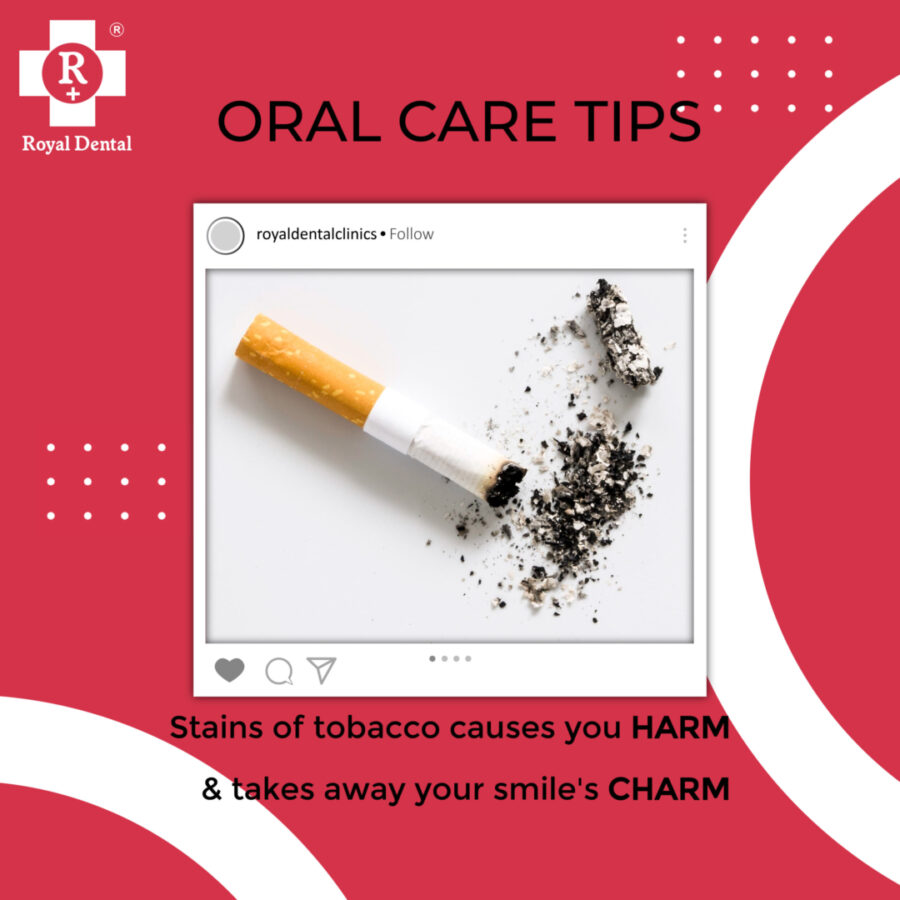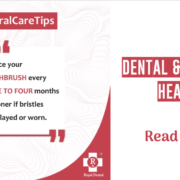The act of smoking a cigarette is something many people find enjoyable, but there are also many negative effects. According to the American Dental Association, tobacco use has been directly linked to several oral health diseases. Some of these include tooth decay, ulcers, and tumours. Smoking also increases your risk for periodontal disease, receding gums, and oral cancer. If you smoke or plan on smoking in the future, it’s important to know how it affects your dental health and what you can do to maintain good oral hygiene.
Know the risks of smoking before you light up.
If you’re a smoker, it’s important to understand the risks of smoking before you pick up that cigarette. Smoking tobacco has been linked to many oral diseases and conditions, including tooth decay, periodontal disease, oral cancer, and bad breath. If you currently smoke and have experienced any of these symptoms, it may be due to your tobacco usage. If you’re a current smoker, there are many ways to help improve your oral health.

You can visit your dentist for a dental cleaning and evaluation. They can help you identify any areas of concern in our mouth and create an appropriate treatment plan. If you’re thinking about quitting, it’s never too late. Quitting smoking at any point in your life can help improve your oral health and lower your risk for disease. It’s best to quit as early as possible to benefit from higher recovery rates. To quit smoking, you can visit your dentist or doctor for advice or consider using an oral health aid like a toothbrush or floss that is designed to help remove excess plaque.
Tobacco usage leads to oral disease and decay.
Tobacco usage is linked to many oral diseases, including tooth decay, periodontal disease, and oral cancers. When you smoke, harmful chemicals are released into your saliva. These chemicals can affect your teeth’s enamel and make them more susceptible to tooth decay. If left untreated, tooth decay can lead to toothaches and dental cavities. Tobacco usage has also been linked to a periodontal disease called gingivitis.

In addition to oral infections, tobacco usage can also contribute to tooth loss. When tobacco is used, it can irritate and inflame the gums. If left untreated, gingivitis can lead to periodontal disease, which can result in tooth loss.
Smoking can result in gum disease and loss of bone density.
Gum disease can result from tobacco usage and is the leading cause of tooth loss. It’s important to note that gum disease can occur even if you don’t smoke. Smoking can lead to gum disease because it dries out your saliva and lowers your body’s ability to fight off infection. As a result, harmful bacteria can build up in your mouth and lead to gum disease.
Gum disease can lead to loss of bone density as well as tooth loss. Both of these conditions are known as periodontal disease. Periodontal disease is a condition where the tissues and gums around your teeth shrink and begin to recede. If ignored, gum disease can result in bone loss and tooth loss.
Tobacco usage harms your teeth’s enamel.
As we discussed above, tobacco usage can dry out your saliva and harm your teeth’s enamel. Saliva is essential for keeping your teeth clean because it contains fluoride. When you don’t have enough saliva due to tobacco usage, fluoride can’t be as easily absorbed.
As a result, your teeth are not as clean and are more likely to develop tooth decay and cavities. Saliva also plays a role in repairing any damage to your teeth. When you don’t have enough saliva due to tobacco usage, it’s harder for your teeth to be repaired. This can lead to harmful bacteria buildup and damage to your teeth.
Tobacco usage leads to bad breath and stains.
As we discussed above, tobacco usage can lead to bad breath. Excess bacteria in your mouth can lead to bad breath, and tobacco usage can worsen the problem. Additionally, tobacco usage can lead to discolouration and staining of your teeth.

Tobacco usage can lead to yellowing and discolouration of your teeth. Meanwhile, tobacco usage can also cause staining on your teeth, which is irreversible. If you currently smoke and want to avoid tooth discolouration and staining, you can use anti-staining toothpaste.
Tobacco usage dries out your saliva?
As we discussed above, tobacco usage can dry out your saliva. This can have many harmful effects, but most importantly, it can lead to poor oral health. A dry mouth can contribute to bad breath, tooth decay, and gum disease. One way to manage your dry mouth is to drink plenty of water. You can also try chewing sugar-free gum to stimulate saliva production.
If you currently smoke, it’s important to take steps to manage your dry mouth. This includes increasing the water you drink and chewing sugar-free gum to stimulate saliva production. If you smoke, it’s also essential to visit your dentist for a dental cleaning and evaluation. Your dentist can help you identify any areas of concern in your mouth and create an appropriate treatment plan. This could include gum disease treatment such as antibiotics and a change in your daily routine to improve oral health.
Tobacco usage contributes to oral cancer risk.
Tobacco usage has also been linked to oral cancer, which is the most lethal form of cancer that affects the mouth. A person’s risk for oral cancer is linked to tobacco usage. Tobacco usage leads to inflammation, which can lead to oral cancer. If you currently smoke, you can lower your risk of oral cancer by quitting. According to the American Cancer Society, oral cancer mortality rates are the highest for cigarette smokers. This can be due to the fact that smoke sticks to teeth and gums and can lead to inflammation.
Conclusion
If you currently smoke, quitting is the best way to improve your oral health. Quitting smoking will lower your risk for oral diseases and put you on track to improve your oral health. If you currently smoke and want to quit, it’s never too late. You can visit your dentist or doctor for advice on how to quit smoking or consider using an oral health aid like a toothbrush or floss that is designed to help remove excess plaque.






